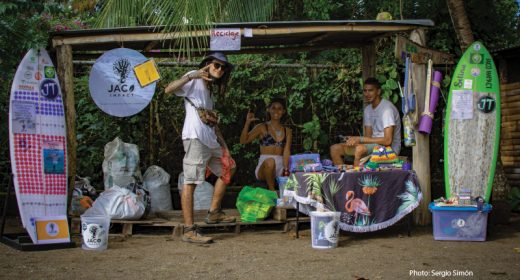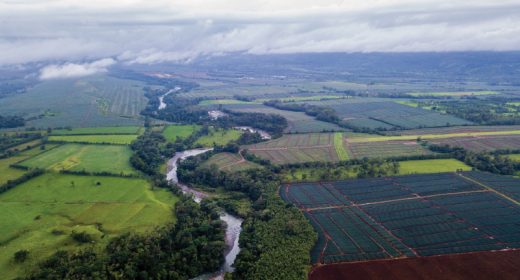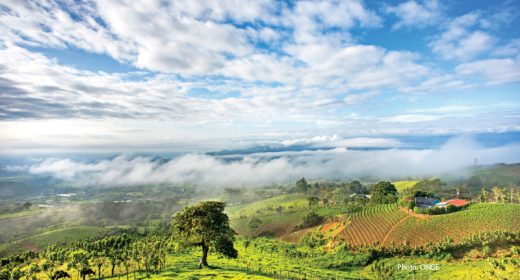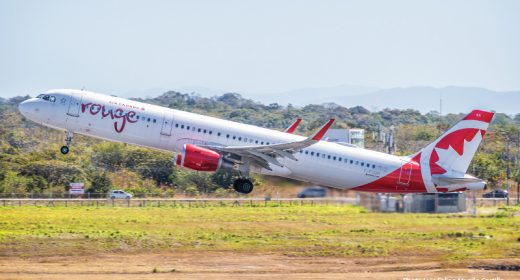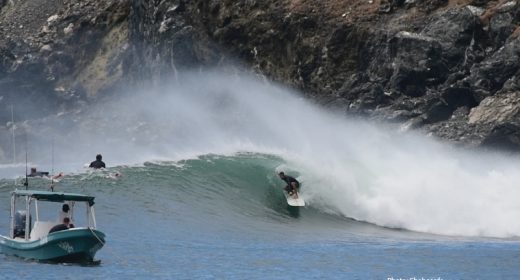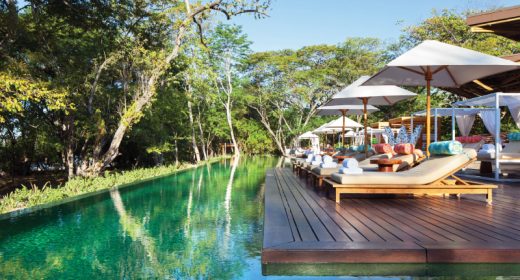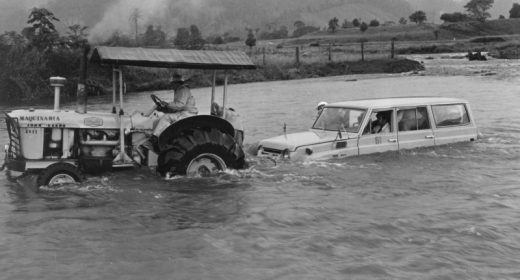
Cocos Island Cleanup: Sea Shepherd Resumes MINAE Partnership
- AUG 31, 2019Warning: count(): Parameter must be an array or an object that implements Countable in /home/howlermag/public_html/old/wp-content/themes/new-paper/includes/general.php on line 193
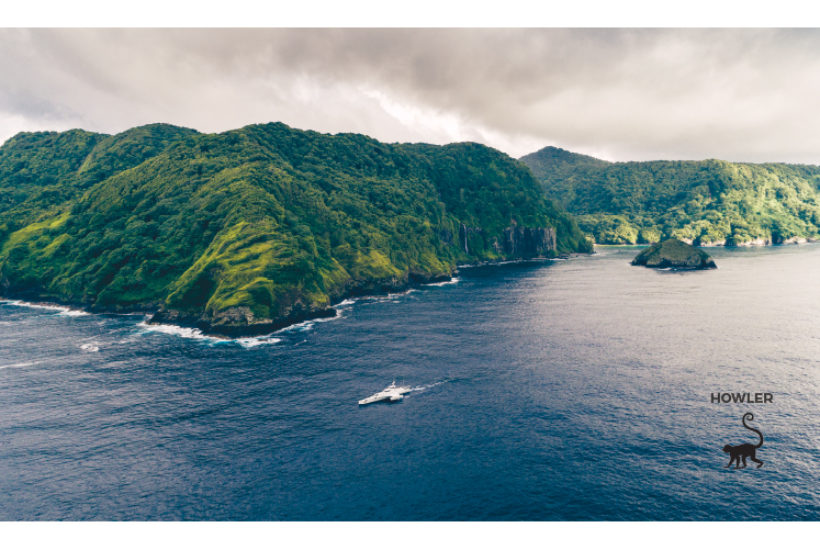
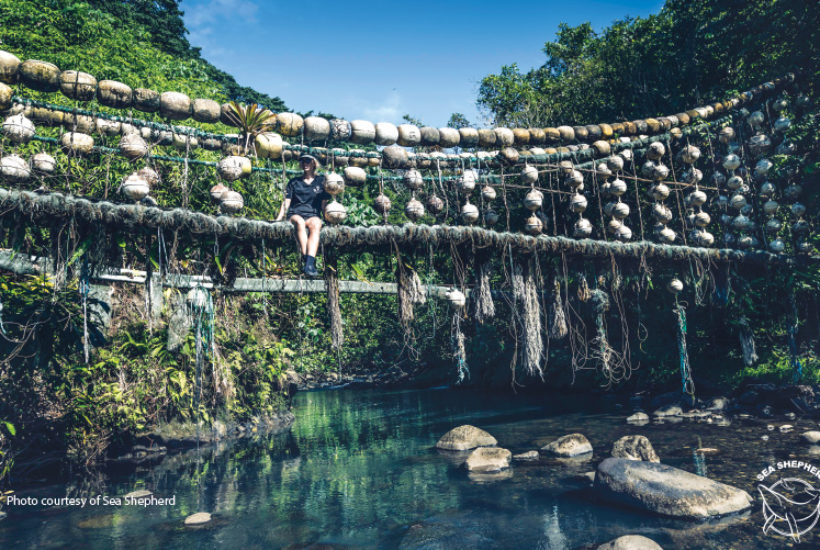
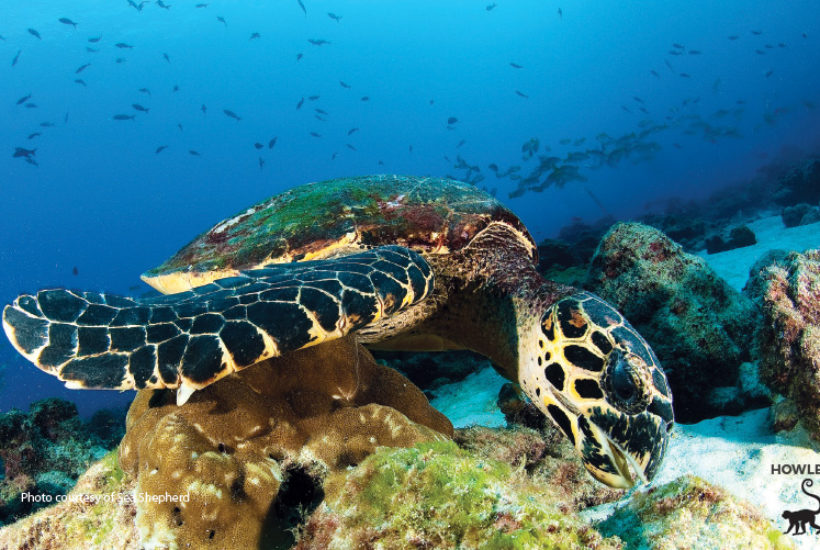
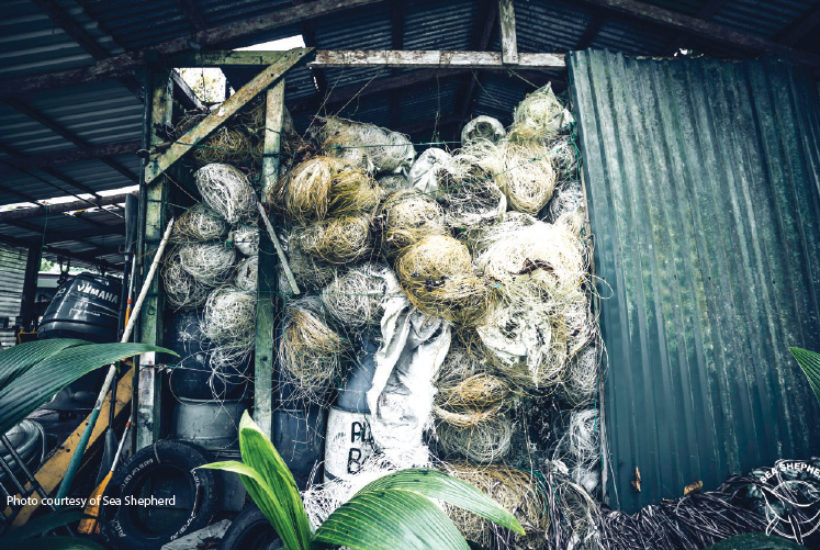
Your Lead Paragrpah goes here
Cocos Cleanup: Sea Shepherd Resumes MINAE Partnership. Massive undertaking to remove 20 years’ worth of eco-waste from Cocos Island marks a turning point in Costa Rica’s disrupted relationship with the Sea Shepherd Conservation Society during much of the same time period.
By invitation of the Ministry of Environment (MINAE), Sea Shepherd recently cleared away some 15 tons of solid waste that had accumulated in Costa Rica’s largest and remotest national park site, about 550 kilometers southwest off the Pacific coast mainland. This renewed public-private partnership to protect Cocos Island extends to Sea Shepherd’s ongoing presence in the area to document illegal fishing activities and take legal action against poaching vessels.
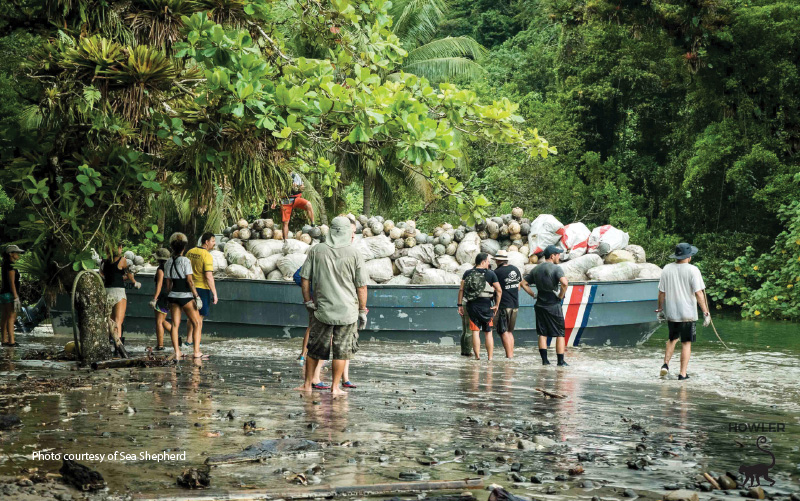
“We will continue to work with organizations like Sea Shepherd,” said Carlos Manuel Rodríguez, Costa Rica’s Minister of the Environment. “They have the passion, commitment, science and technology that complement what we do in this ministry. It is a ‘double-gain’ situation that makes sustainable and lasting over time the actions we can develop together.”
‘Sea Shepherd’s commitment to protect
sharks and their habitats is once
again reinforced through this mission.’
Team effort with one purpose
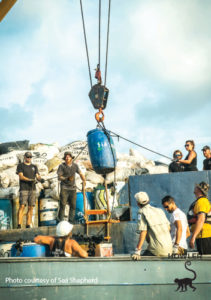 The formidable Cocos cleanup operation began on March 23, 2019, when the newest Sea Shepherd vessel, the M/V White Holly on its first Costa Rican voyage, reached the island. The Sea Shepherd volunteers on board were joined by other volunteers, national park rangers and firemen and MINAE representatives. They set out to prove that no obstacle is insurmountable when steadfast wills and capable hands come together with a common purpose.
The formidable Cocos cleanup operation began on March 23, 2019, when the newest Sea Shepherd vessel, the M/V White Holly on its first Costa Rican voyage, reached the island. The Sea Shepherd volunteers on board were joined by other volunteers, national park rangers and firemen and MINAE representatives. They set out to prove that no obstacle is insurmountable when steadfast wills and capable hands come together with a common purpose.
Diligent planning and preparations beforehand had taken into account the daunting technical and logistical challenges of removing such an immense volume of waste. Mobilizing the heavy loads required an adequate load boat with a crane to transfer the garbage from the island, in the absence of a mooring dock. Sufficient volunteers had to be organized, and catering services to feed them. Mainland arrangements were also needed to distribute the waste to recycling points, and to coordinate all other actions in the collection and disposal process.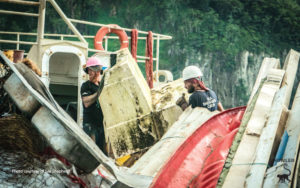
Minister Rodríguez conveyed appreciation for the magnitude of what was accomplished: “Removing waste from a national park can be considered something ordinary, but doing it from Cocos Island — one of the most remote and best preserved wild sites of the planet — is an achievement that makes us very proud and, above all, very grateful.”
Deadly hazard repurposed for good
Among other refuse, much of the waste removed from Cocos consisted of illegal shark finning long-lines as well as hooks and buoys confiscated by national park rangers on site. Fortunately, the 2,300 miles of nylon long-lines collected can now be put to good use. Delivery to the eco-friendly textile manufacturer Aquafil, for upcycling into fabric, ensures this material will never kill marine wildlife again.
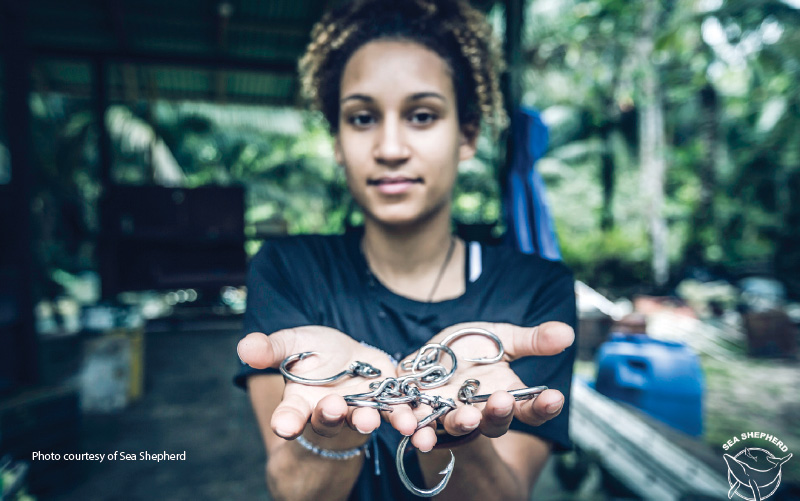
“Plastics and marine debris are a serious threat to marine ecosystems,” said Captain Paul Watson, Sea Shepherd founder. “To be able to remove illegal nylon fishing gear from such a pristine environment and repurpose the material, ensuring it will not be used to kill sharks again, is another step in protecting sharks and the eastern tropical Pacific marine environment, which Cocos is part of. This is a very important area of the world for sharks and Sea Shepherd’s commitment to protect sharks and their habitats is once again reinforced through this mission.”
Sea Shepherd’s long-standing activism against marine debris in remote islands includes various microplastics research projects. In 2018, the organization boosted a plastic and marine debris clean up effort at Fanning Atoll, a remote central Pacific coral reef belonging to the country of Kiribati.

Globally important marine ecosystem
For its importance as a marine ecosystem, Cocos Island is a world heritage site of the United Nations Educational, Scientific and Cultural Organization (UNESCO). Together with other UNESCO locales in Colombia, Ecuador and Panama, it’s part of the ocean conservation network known as the Eastern Tropical Pacific Marine Corridor. The so-called “thermal convection dome” vicinity north of Cocos Island is where major submarine cold currents of the Pacific emerge to meet trade winds. This serves as a nursery haven, feeding about 7 percent of the world’s biodiversity of marine species on their migration path.
Sea Shepherd’s Cocos connection dates back to 2001, when it played a key role in bringing illegal longline fishing operators to justice. In cooperation with Cocos park rangers, those on board a Sea Shepherd patrol vessel helped seize the Ecuadorian longliner San José and turn it over for Costa Rican court prosecution. It became the country’s first poaching vessel court case of its kind. The conviction was based on filmed evidence, statements and GPS location data provided by the conservation society.
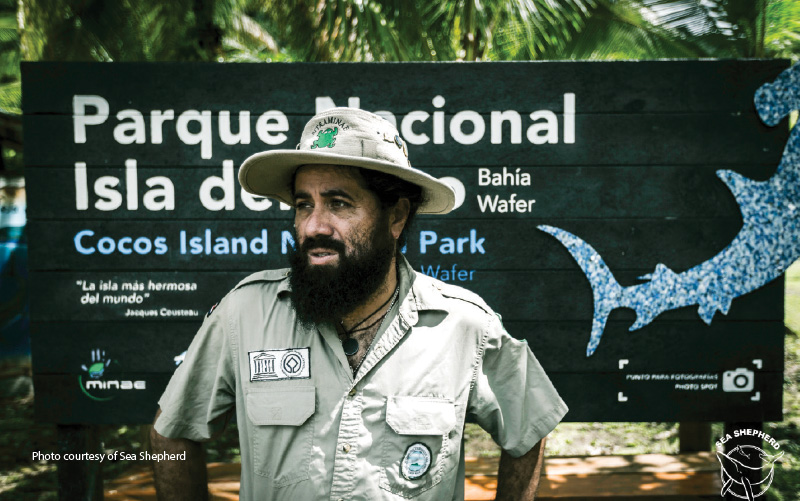
Renewed partnership
Subsequently, a 2002 poaching intervention by Sea Shepherd in a different jurisdiction triggered a protracted legal dispute between Costa Rican authorities and Captain Paul Watson. The organization’s marine protection efforts at Cocos Island and other endangered waters were hampered as a result.
On March 12, 2019, a criminal appeals court ruling in Captain Watson’s favor brought closure to the case and set the tone for Sea Shepherd’s renewed partnership with Costa Rica. (See Rising Above the Undertow)
Meanwhile, with its intercept vessel M/V Brigitte Bardot, Sea Shepherd has been patrolling the offshore tropical Pacific waters near Cocos, Galapagos and other UNESCO sites for the past six months. As part of Operation Mamacocha, its mission is to protect migrating sharks that transit in between these prolific island systems. When illegal fishing fleets trespass the marine-protected boundaries to catch migrating sharks, Sea Shepherd is documenting their activities and taking legal action against them.

Award Nominee
 Cocos Island National Park has been nominated for the 2019 Global Ocean Refuge Award (GLORES), an honor bestowed annually by the Marine Conservation Institute. The announcement of winners in October follows deliberations by a scientific committee.
Cocos Island National Park has been nominated for the 2019 Global Ocean Refuge Award (GLORES), an honor bestowed annually by the Marine Conservation Institute. The announcement of winners in October follows deliberations by a scientific committee.
As one of six international candidates this year, Costa Rica’s remote offshore ecosystem is being evaluated according to science-based criteria for conservation effectiveness. Global Ocean Refuge status is awarded to marine-protected areas demonstrating strong, sustainable safeguards for biodiversity and resilience to climate change.
As quoted in a Costa Rica Star news report on July 7, Carlos Manuel Rodríguez, Minister of Environment and Energy, said the nomination reflects well on public-private efforts to make sustainable use of Costa Rica’s natural resources.
“Cocos Island National Park, guarantees Costa Ricans and the world, the conservation of a natural sanctuary of marine and land species, which represents a key site for the development of science,” he said.
Read more about the island here!

